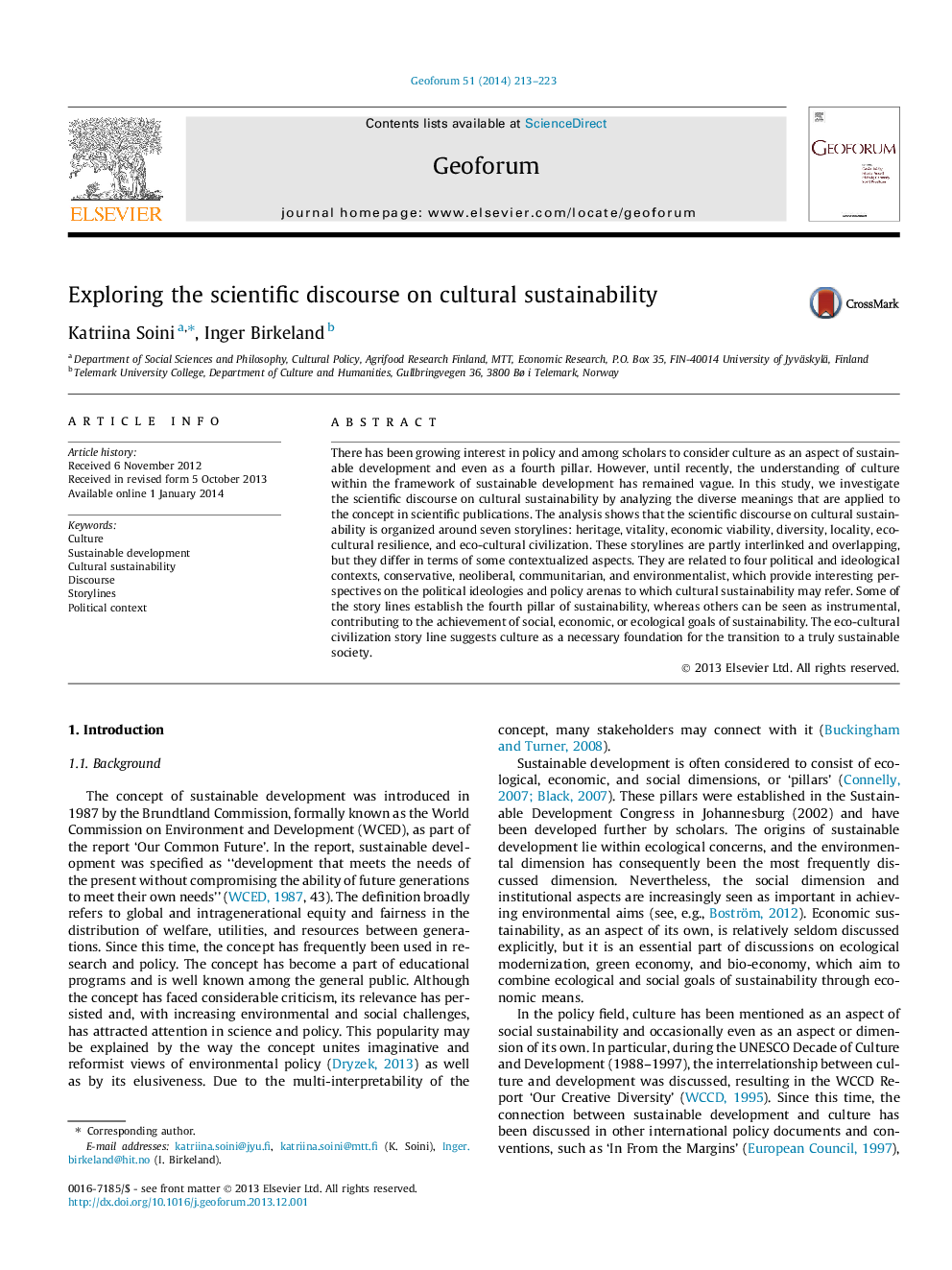| Article ID | Journal | Published Year | Pages | File Type |
|---|---|---|---|---|
| 5073913 | Geoforum | 2014 | 11 Pages |
â¢The scientific discourse of cultural sustainability explored.â¢Seven storylines and four policy contexts identified.â¢The multi-interpretability of cultural sustainability revealed.â¢Three main roles for culture in sustainable development identified.
There has been growing interest in policy and among scholars to consider culture as an aspect of sustainable development and even as a fourth pillar. However, until recently, the understanding of culture within the framework of sustainable development has remained vague. In this study, we investigate the scientific discourse on cultural sustainability by analyzing the diverse meanings that are applied to the concept in scientific publications. The analysis shows that the scientific discourse on cultural sustainability is organized around seven storylines: heritage, vitality, economic viability, diversity, locality, eco-cultural resilience, and eco-cultural civilization. These storylines are partly interlinked and overlapping, but they differ in terms of some contextualized aspects. They are related to four political and ideological contexts, conservative, neoliberal, communitarian, and environmentalist, which provide interesting perspectives on the political ideologies and policy arenas to which cultural sustainability may refer. Some of the story lines establish the fourth pillar of sustainability, whereas others can be seen as instrumental, contributing to the achievement of social, economic, or ecological goals of sustainability. The eco-cultural civilization story line suggests culture as a necessary foundation for the transition to a truly sustainable society.
